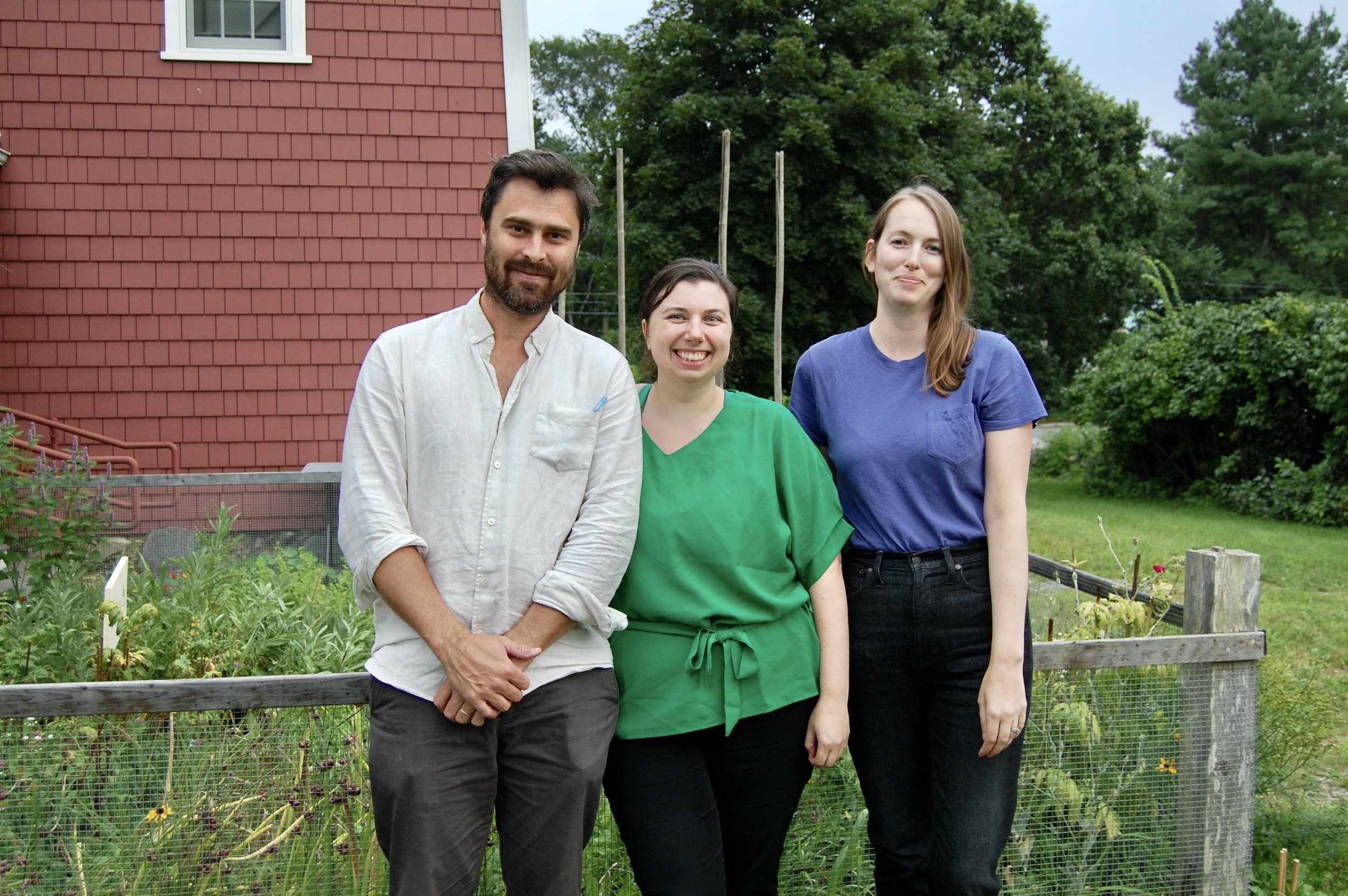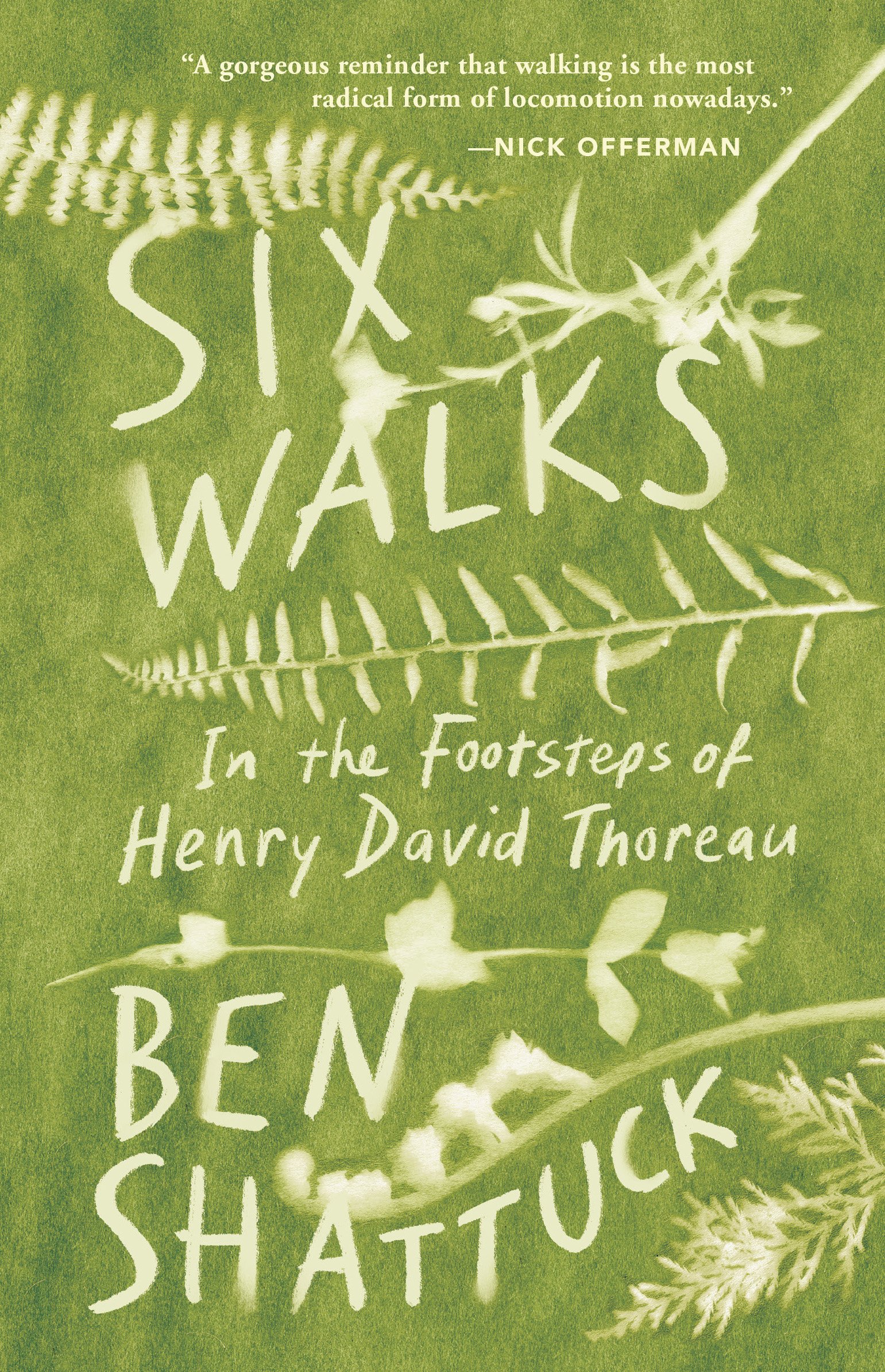Choosing a Path: Henry and Ben
“In walking, as in living, you must choose a path. You must go one way, and so give up another way.” – Ben Shattuck, Six Walks
On a beautiful early August evening, Massachusetts Center for the Book and Thoreau Farm co-hosted a reading, signing and nature walk with Ben Shattuck of Six Walks: In the Footsteps of Henry David Thoreau at the Concord farm. This program was supported by the Library of Congress and COSLA (Chief Officers of State Library Agencies).
A 2023 Massachusetts Book Awards Must Read in Nonfiction, Shattuck’s memoir was also selected as the Commonwealth’s Great Reads from Great Places adult title at the 2023 National Book Festival in Washington, D.C. on August 12.
Curious, thoughtful, candid and charming, Ben Shattuck lives up to the person we meet as the narrator in Six Walks. An artist and a writer of fiction, he admitted he wasn’t drawn to Thoreau’s writing in high school and college, having been required to read it. It was years later, facing a challenging period in his life, that he found himself finding solace and inspiration in Thoreau’s journals and developed an “organic love affair” with his writing.
In the first excerpt Shattuck read, he elaborated comfortably about how he began his walks as a distraction from emotional and physical distress as he coped with the aftermath of a breakup, an accident, and the latent symptoms of Lyme Disease. There were no plans for a book; he simply heard the voice of Thoreau luring him to walk, sketch and journal to find peace and contemplation.
“Henry went on his walks to find the veins connecting him to nature; I went to shed my dreams. Instead of shedding, I’d added more. More people and more landscape and more stars. How lucky it felt, like the high tide had come into my life.”
Six Walks emerged from Shattuck’s 2019 essay “Three Walks” published in The Common, a literary journal based at Amherst College. The piece detailed his Cape Cod, Mount Katahdin, and Mount Wachusett walks and prompted a book proposal. Shattuck then added three more: his “Southwest” walk along the Southeastern Massachusetts and Rhode Island coastline; Maine’s Allagash Wilderness; and a return trip to the Cape. (Due to the pandemic, he was unable to walk along the Long Island shore where Thoreau famously searched for the remains and manuscripts of Transcendentalist Margaret Fuller, a victim of a shipwreck in an 1850 storm.)
(L-R): Author Ben Shattuck; Rebecca Migdal, Executive Director of Thoreau Farm; and Courtney Andree, Executive Director of Mass Center for the Book
Weaving the observations and experiences of Henry David Thoreau with his own, Shattuck closely examines nature and his relationship with it in his book. He worries about climate change. Like Thoreau, he contemplates the value of longtime friends, new acquaintances and companionship in general. Most importantly, he acknowledges the essence of love in his life. He noted in his Wachusett notebook: “If we can’t be sure of divinity, we can be sure by the divine feeling of being held in a web of love.”
Shattuck explained the circular pattern of every walk consists of physically and symbolically traveling away from home to a certain point and then switching back to return. These treks spanned a period of significant personal changes and growth for him; while the first walks occurred when he had an urgency to leave home, his later ones found him propelled back home to his new family. This beautiful and powerful pattern was not lost on him.
In the Q & A, Shattuck shared some lessons and takeaways about nature, walking, and writing inspired by Thoreau and his own experiences on foot:
• His best walking and writing derived from spontaneous decisions that felt like waking dreams: “Without a plan, with only an impulse to walk, I’d finished the day here: in the home of kind strangers who’d served fried scallops for dinner and told stories about winter ice fishing on the pond just out their door. I had a clear feeling that I was supposed to end up here.”
• Shattuck noted that you should lose your typical thought process during a long walk, being sure not to “leave your head back in town.” As Thoreau wrote: “At length, as we plodded along the dusty roads, our thoughts became as dusty as they; all thought indeed stopped, thinking broke down, or proceeded only passively in a sort of rhythmical cadence of the confused material of thought.”
• He encouraged the attendees to read Thoreau’s journals, noting the abstract questions posed in his earlier ones, while the sharp descriptions of the beauty of nature – linking it to divinity – make the later journals read like sermons.
• Shattuck finds Thoreau’s theory of traveling from home toward a destination by heading southwest on foot to be remarkably satisfying. As Thoreau observed: “When I go out of the house for a walk, uncertain as yet whither I will bend my steps, and submit myself to my instinct to decide for me, I find, strange and whimsical as it may seem, that I finally and inevitably settle southwest … The future lies that way to me, and the earth seems more unexhausted and richer on that side.”
• These walks introduced Shattuck to the practice of journaling. He learned that the habit generated a sharp mindfulness of his surroundings, lengthening each day and filling out his life.
In the book’s acknowledgments, Shattuck states: “Am I allowed to thank Henry David Thoreau? Well: your brief time on this earth, and how you saw it all and wrote it all down, has made the most profound impact on my deepest core. Thank you for showing so many of us a way to walk through the world.”
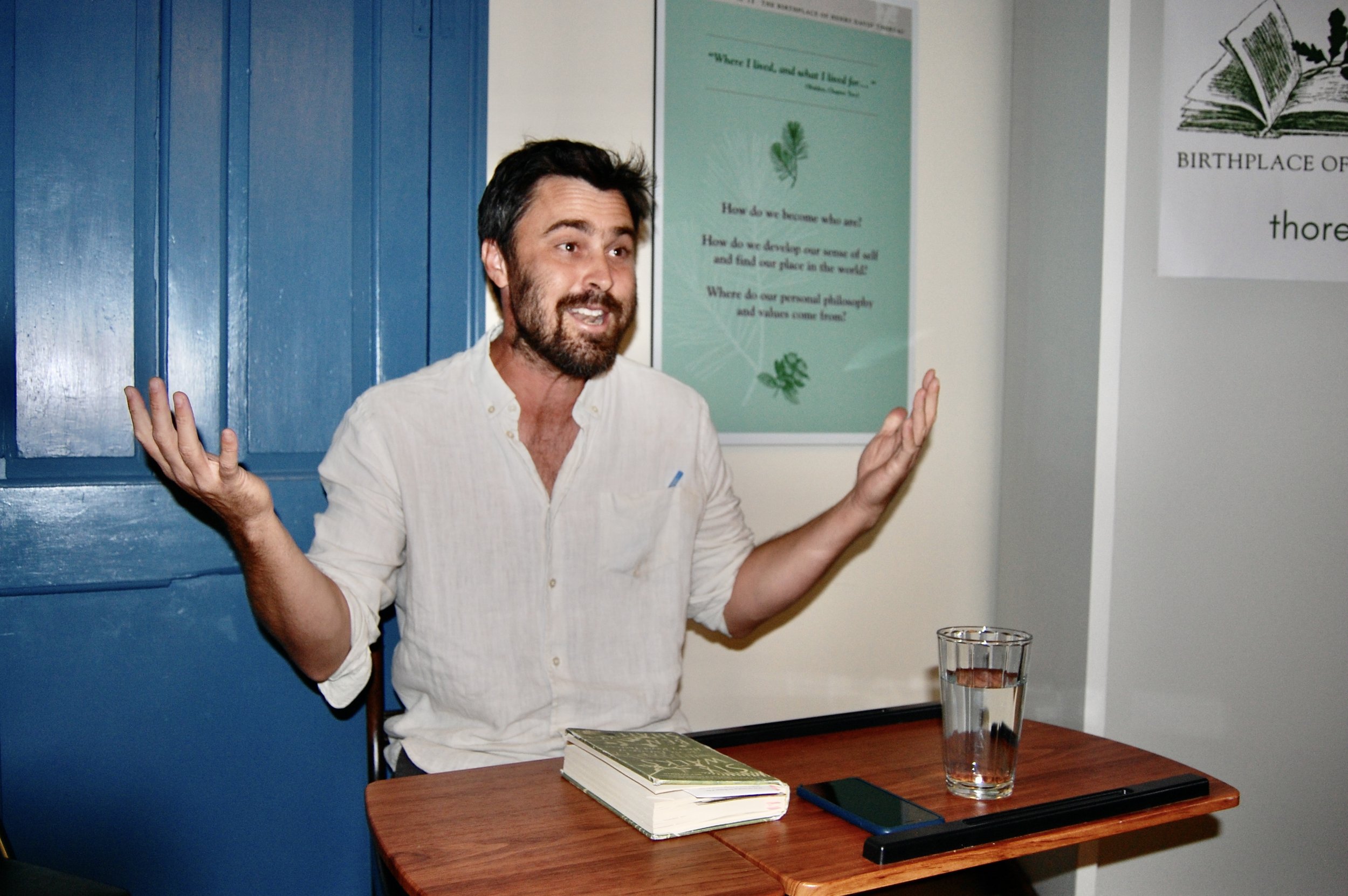
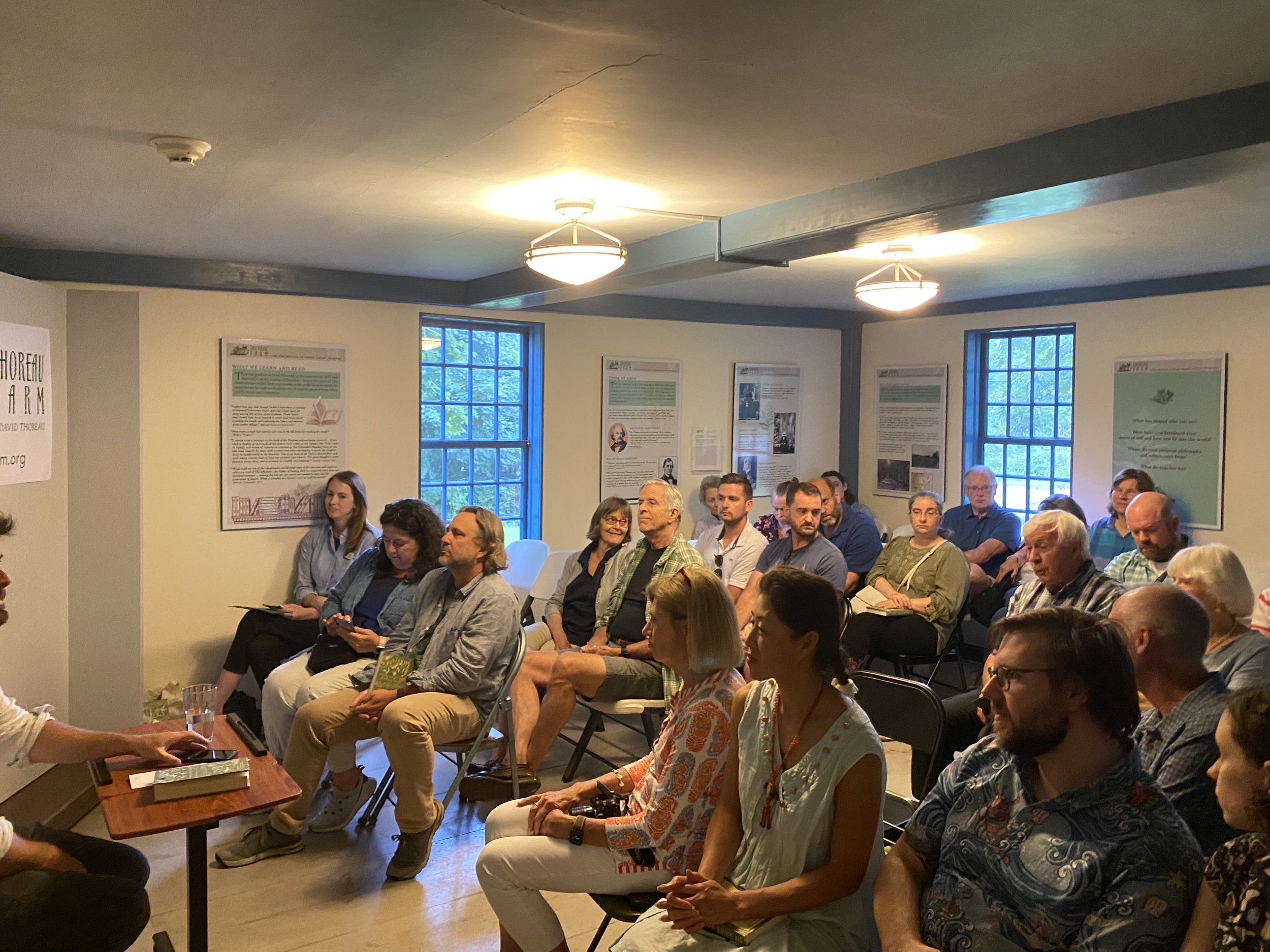
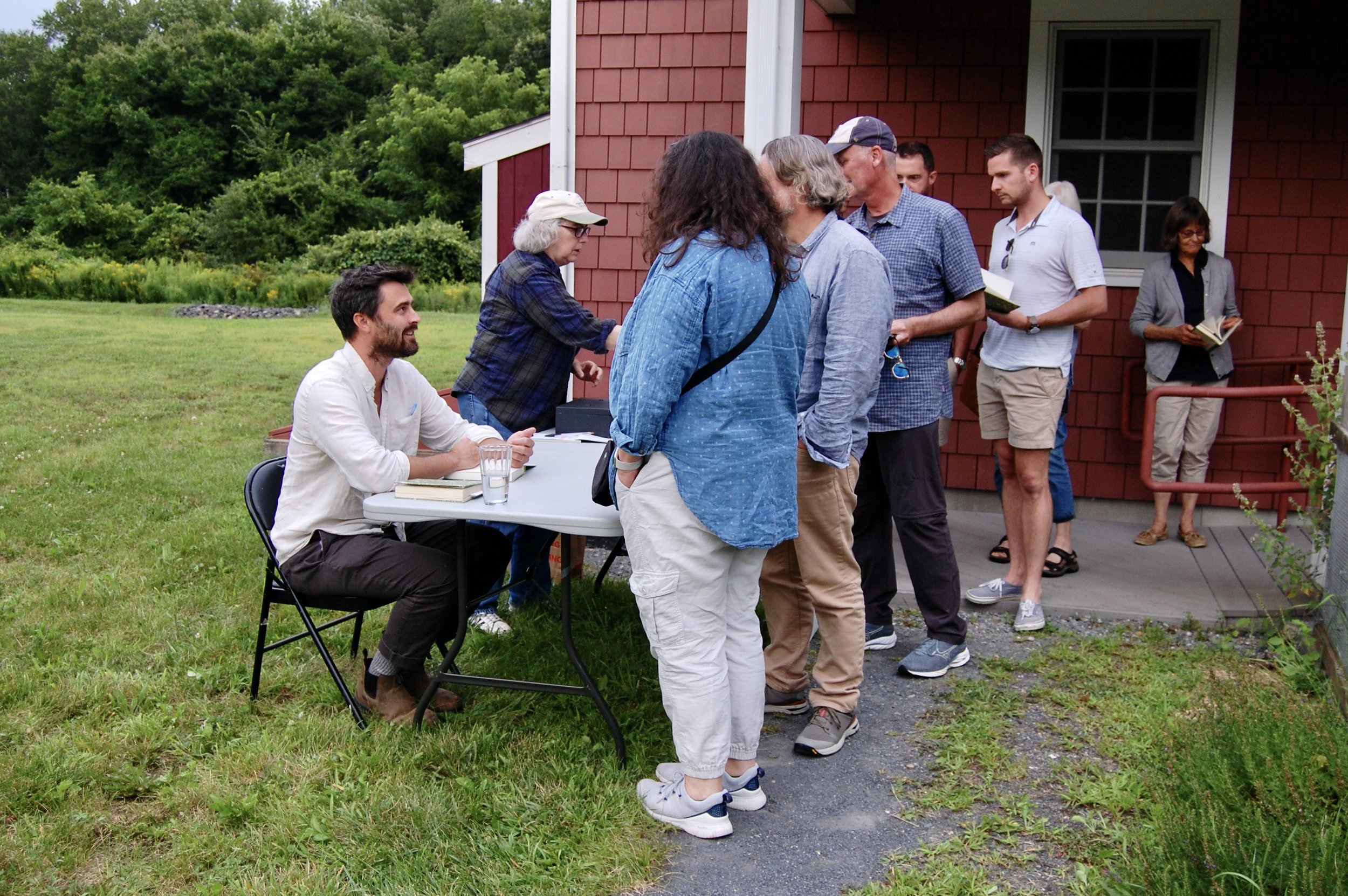
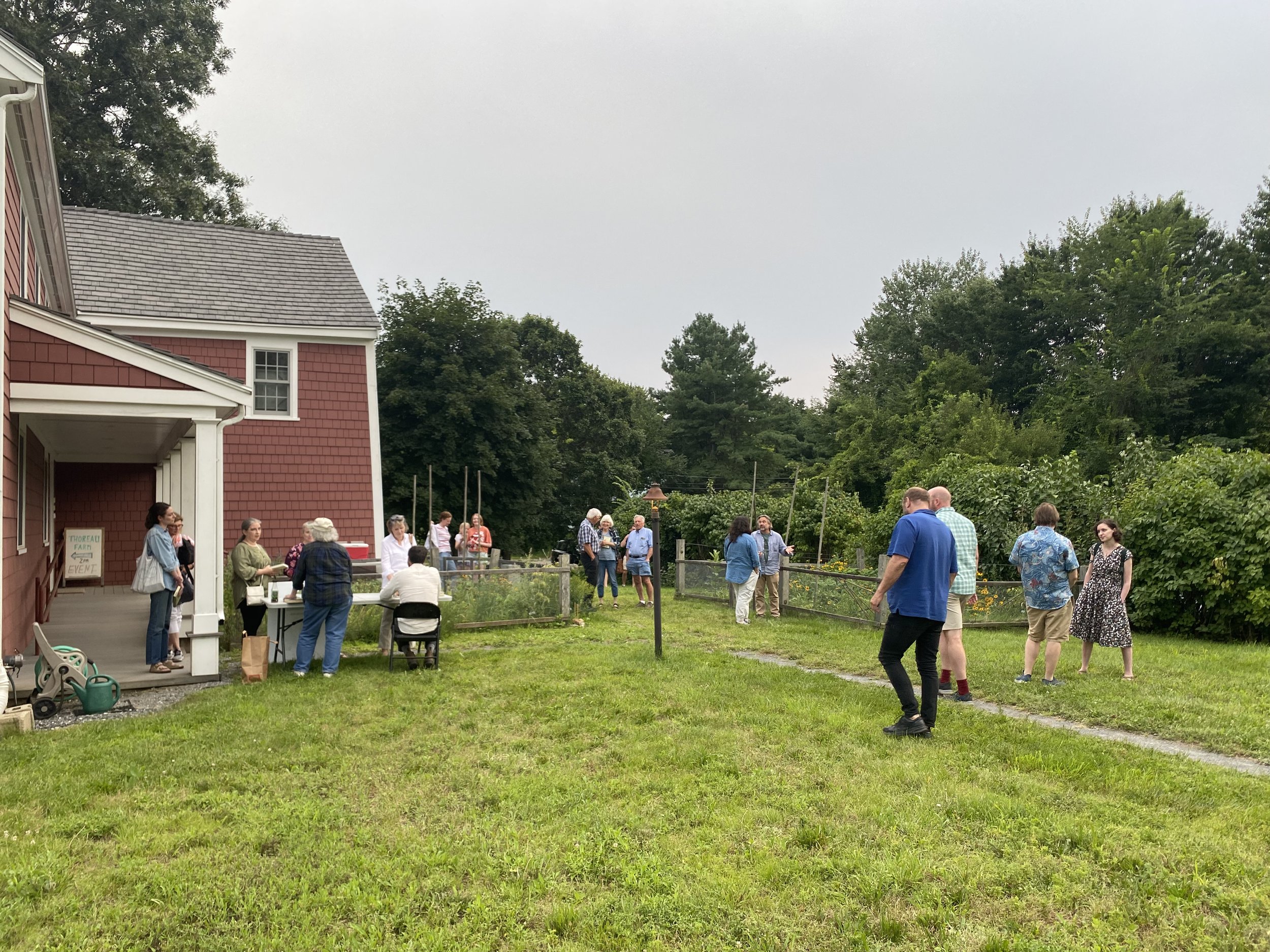
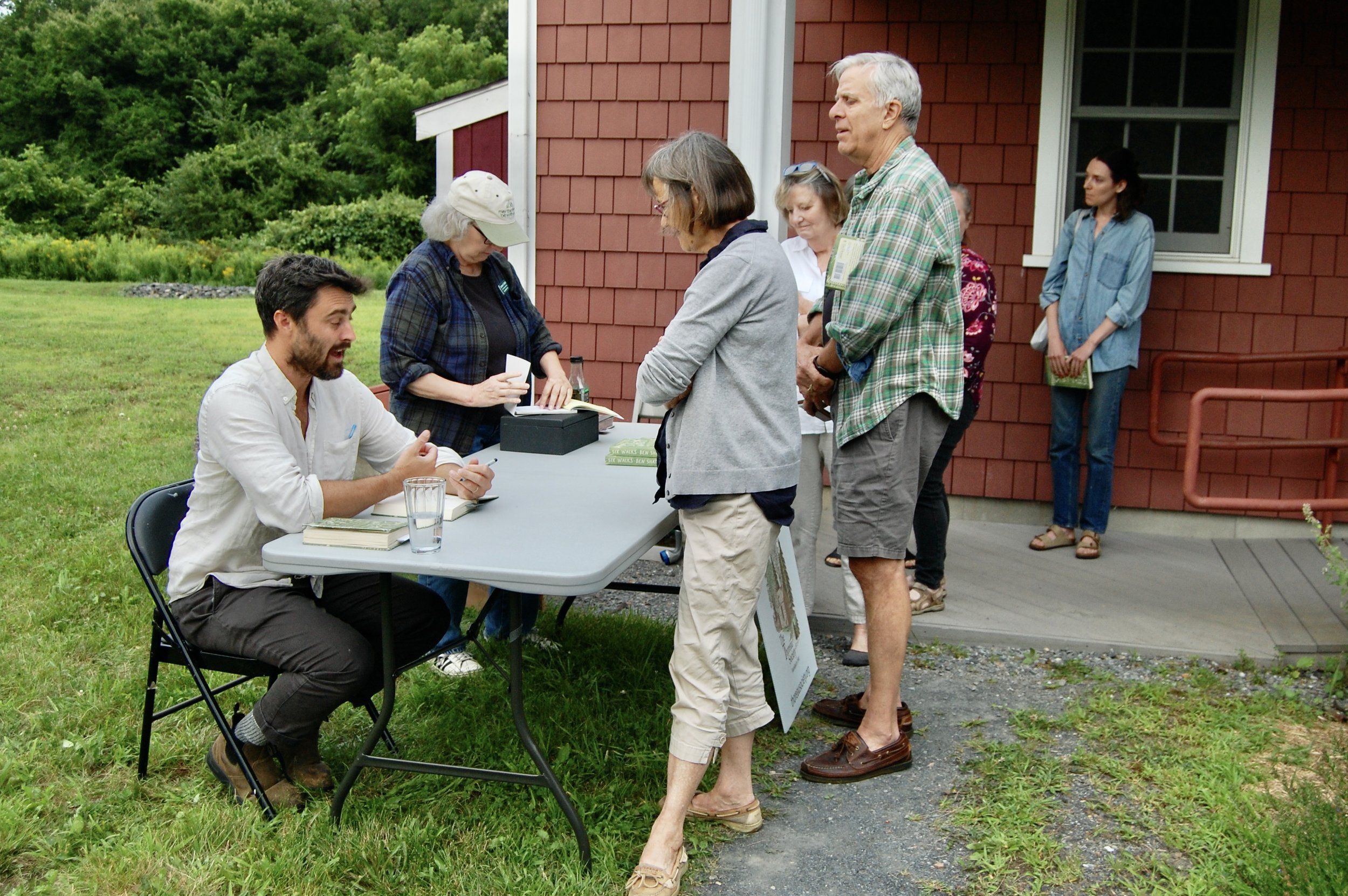
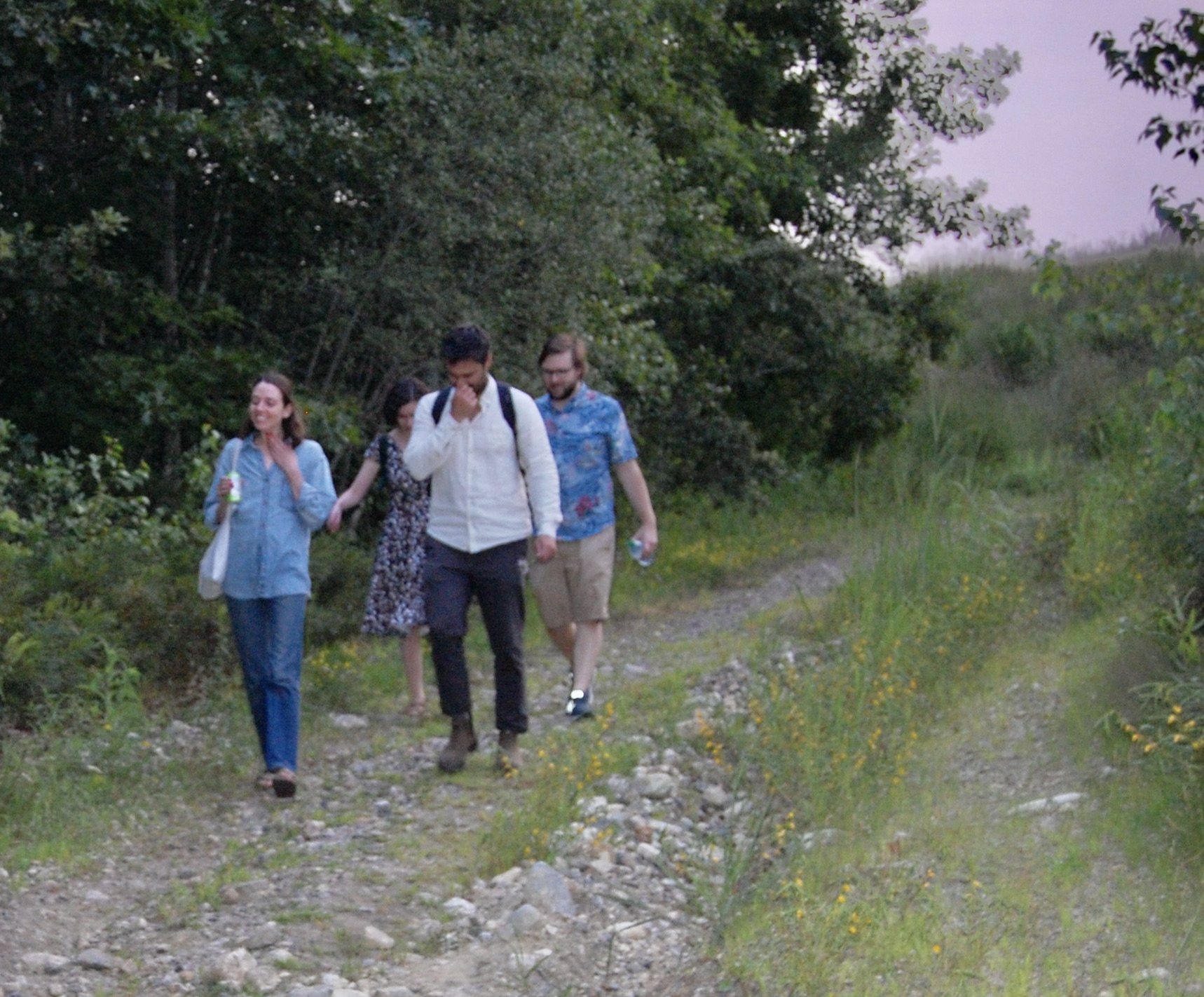
Ben Shattuck, a former Teaching-Writing Fellow and graduate of the Iowa Writers’ Workshop, is a recipient of the PEN/Robert J. Dau Short Story Prize and a 2019 Pushcart Prize. He is the director of the Cuttyhunk Island Writers’ Residency and curator of the Dedee Shattuck Gallery. His writing can be found in the Harvard Review, The Common, The Paris Review, Lit Hub, and Kinfolk, and a forthcoming short story collection will be published in the summer of 2024. He lives with his wife and daughter on the coast of Massachusetts, where he owns and runs a general store built in 1793.


